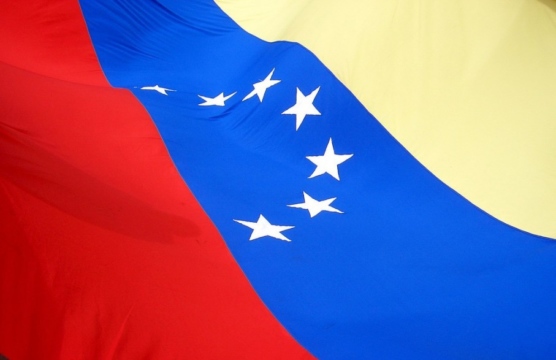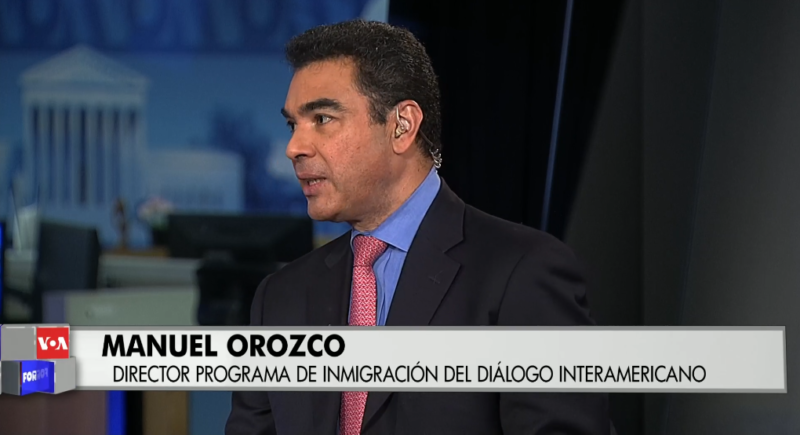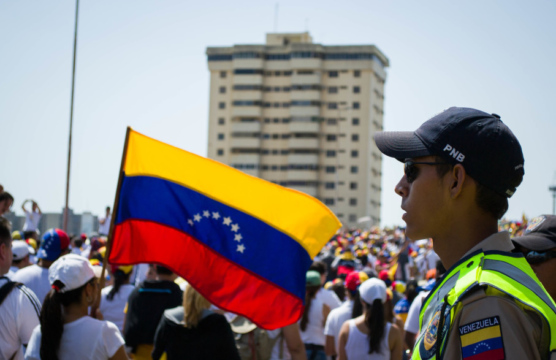
Falling Oil Prices Push Venezuela, Maduro Closer to the Edge
With crude oil prices down 25 percent since June and holding at roughly $86 a barrel on Tuesday, Venezuela is getting nervous.
This post is also available in: Español
Manuel Orozco was interviewed on February 14, 2020 by Gonzalo Abarca from VOA Noticias: Foro Interamericano. Orozco was joined by Adam Isacson (Washington Office on Latin America ) and Eduardo Escobar (Acción Ciudadana). Together, they discussed H2A visas for Guatamalans, Nayib Bukele’s display of military force and Juan Guaidó’s international tour.
Abarca: What impact do you think [the H2A visas] will have for the economy of Guatemala and the United States?
Orozco: “We are talking about less than 3,000 visas - it is not the number one would really want, however, it is a positive step. [The] chance of entry is about 20 percent, so we need a more acceptable and realistic number for the labor demand of this country. We must also look at the structural causes of why people have migrated. Last year, there were 850,000 who left - this was because of the fear that a wall was going to be made.”
Abarca: How is it possible that President [Bukele threatened the Legislative Assembly] and has still maintained such high popularity?
Orozco: “[We still] don't know how much [popularity Bukele] lost after what happened on Sunday. He did not need to do what he did, it is an abuse of authority, a violation of checks and balances and an avoidance of accountability. Paradoxically, behind them was GANA, the political party he was a part of. This is the arrogance of a person of a generation that feels very empowered and that demands a response from the state. Those answers must be [decided upon] within the rule of law and unfortunately the rule of law in Latin America is very bad."
Abarca: What do you think Guaidó has won with this international tour?
Orozco: “He wins a lot. Guaidó has very strong international diplomatic support, including economic materialization of that support. He also has popular opinion support, approximately one in three Venezuelans - which is not as big as one expects. Maduro does not have a majority either – approximately one in two Venezuelans – but there is a center that wants a change.”
“In four years when the Maduro period ends, this situation must be resolved in another way. The elections are an opportunity to restore the balance of power in this current situation. I believe that one of the options is to get in the contest, create a relatively unified system and neutralize what has just usurped the assembly usurped and try to win back the space. However, an armed route is not an option.”
With crude oil prices down 25 percent since June and holding at roughly $86 a barrel on Tuesday, Venezuela is getting nervous.
Can the government led by Nicolas Maduro survive the wave of street protests that have spread throughout Venezuela over the past two weeks?
Deadly protests, the largest since President Nicolás Maduro’s election last year, have wracked Venezuela in recent weeks.
 VOA Noticias
VOA Noticias
